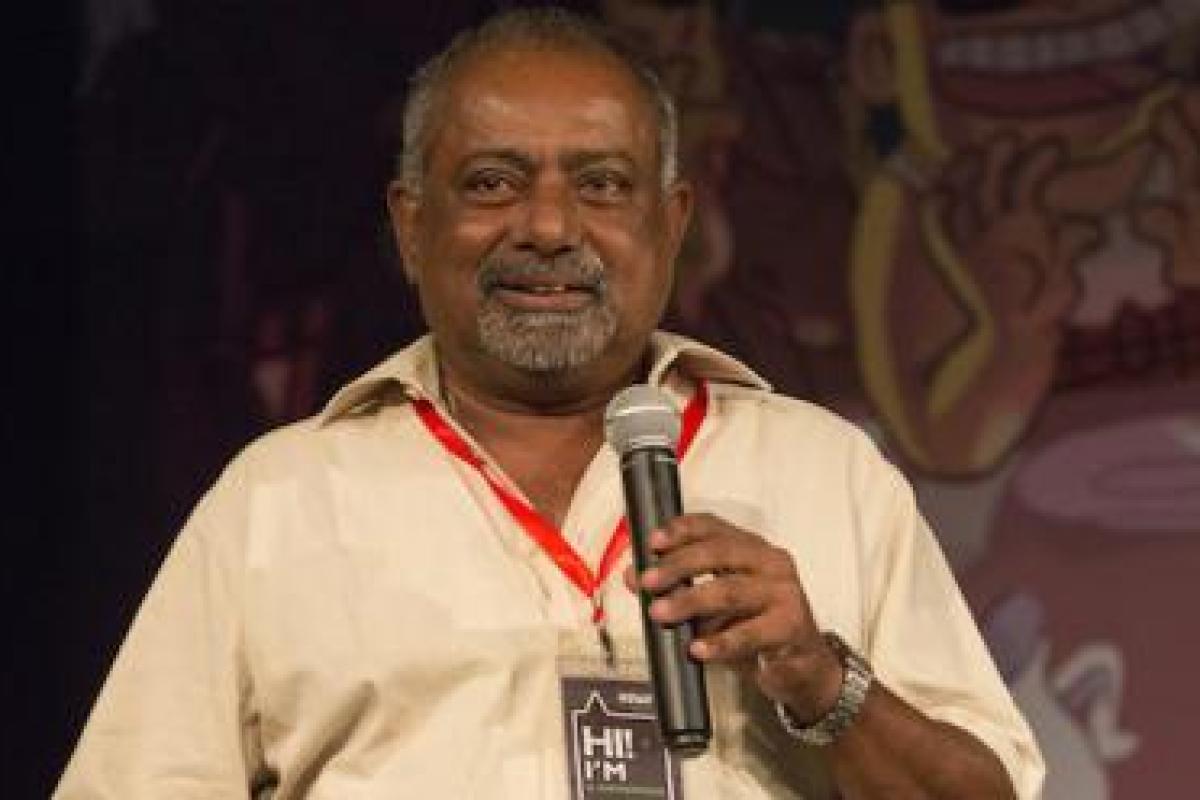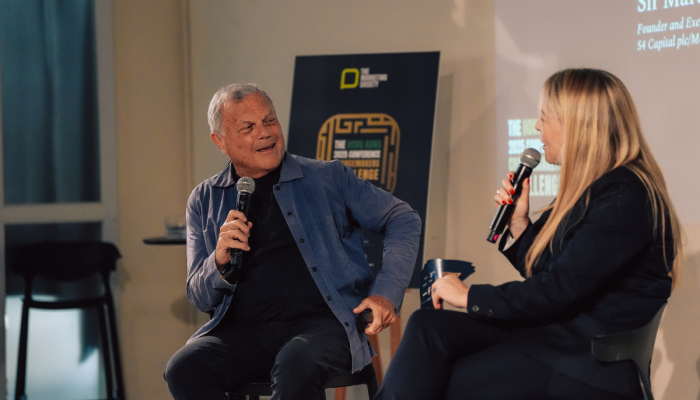Award-winning investigative journalist R. Nadeswaran, best known by his popular column name Citizen Nades, has built a reputation over 43 years in the trade for “telling it like it is” for The Sun, Malaysia’s highest circulating English-language newspaper.
In this Q&A with Mumbrella Asia’s editor Robin Hicks, ‘Nades’ talks about where the line is for the mainstream media when writing about politics, what it takes to rattle the corrupt, Malaysia’s lowly position in the press freedom index, whether he’s ever self censored, and the time in his career when he was most scared.
How do you know where the line is when writing about government matters and politics in Malaysia, where there are sometimes grey areas for what will is acceptable?
As a policy, I don’t touch race, religion and politics in my columns.
I address bread and butter issues and my quarrel is not with politicians. The issues that are raised affect all Malaysians as rate-payers.
I have criticised government departments and government servants and by extension, the minister in charge. I point out the shortcomings and how taxpayers’ money goes down the drain. And when I do so, I have the facts and figures and in most cases, documents to back my claims.
And all of them know that it is nothing personal.
At a meeting five years ago, the Chief Secretary to the Government introduced me to top civil servants and asked them to engage with me on issues affecting their respective departments.
Sadly, only one or two chose to take his advice.
There is this ‘fear culture” in most government departments and my advice to them has been consistent: “Don’t treat me as your enemy; I want to be your friend.”
Which of your stories in your career as a journalist have upset the government the most?
Because of the nature of the issues addressed in my column point to weaknesses, abuse or misuse of public funds or power, they naturally upset a lot of government servants. But I think the government is happy that I am keeping the civil servants on their toes. I have in the past received “well done” calls from ministers who feel I am doing the right thing.
As for anyone getting upset, it was former Tourism Minister Ng Yen Yen, who went on a tirade after I exposed her as the holder of Permanent Resident Status in Australia when she took her oath of office as a Senator in the Upper House of Parliament. My argument was that you can’t have one leg in Australia and another in Malaysia and call yourself a lawmaker. Subsequently, a series of articles on an arm of Tourism Malaysia did not go down well with her successor.
What does it take to write a story that rattles the cages of the corrupt? (How do you know when you have enough to run the story? How do you protect your sources?)
When facts and figures are presented, obviously they will get rattled. Instead of addressing the issue, they go on trying to find out how I obtained the information or who leaked the information. I have always maintained that they should not shoot the messenger.
It has been the SOP for all contentious articles going through our lawyers, who go line-by-line asking for documents or evidence of the allegations and accusations that are being made. Only when they are satisfied that the article goes to print.
As for my sources, they trust me. I am being brutally honest. I don’t even know some of them as they drop off documents at the office or send them via post. I will then have to verify the authenticity of these documents.
Do you think that the Malaysian mainstream media will continue to be government dominated in the foreseeable future, or do you feel that online journalism and the public response to The Edge-1MDB story will lead to change in the way the news is reported by the mainstream press?
I don’t think anything is going to change but journalists and editors should continue pushing the envelope. There has been a new awakening. With blogs, Facebook and other platforms, the government has to accept that free flow of information cannot be stopped. On the contrary, many newspapers are beginning to re-print stuff from on-line media and many instances of quoting on-line media in their reports.
Which Malaysian journalist, from the past or present, do you admire the most and why?
There are many. But two stand out and they were my mentors in my formative years in the Seventies. One was the late Ratan Singh @ Razman [who passed away in 2009] who had the knack of re-writing and making an article “readable”. He was a fatherly figure who treated all reporters as his friends and often shared a beer or two with young reporters and regaled us with his escapades and encounters in his younger days. The other was my first news editor, Philip Mathews. He taught me “critical thinking” and created ideas for my stories. I was then a cub reporter. He taught us to work as a team and was a great motivator. He stood by his reporters when the complaints and rebukes came in, and he took the stand that “the buck stops with me.”
What do you make of the annual Reporters without Borders survey, which places Malaysia 147th out of 180 countries for its freedom of the press (one place above Singapore). How seriously do journalists such as yourself take the index and what it says about journalism in Malaysia?
I think most journalists would take it seriously. But you must understand their constraints. They may write a great story, but at the end of it all, the editor may have other views about it. In my case, I am fortunate – very fortunate that my editors and owners of the newspaper know where I am coming from. There has never been any agenda – personal or otherwise. My agenda has always been to inform, educate and entertain our readers. They read what I have to say and they make up their minds. I have always stated that everyone has a right to disagree with my views and emphasised that it is a given.
Have you ever knowingly self censored?
Yes. There have been instances where my discovery and making putting it in public domain would jeopardize security and even in one case, someone’s life was at stake.
For every story you’ve written, how many have you not been able to write?
I can’t remember any of my stuff being spiked in the recent past.
Over your career, at what point were you the most afraid?
In 1987, there was Operation Lallang under the dreaded Internal Security Act. A colleague, Rehmad Rashid had already been pulled up for questioning. There were rumours that a few other journalists would be arrested. That caused some worry, but nothing happened.
This article first appeared on the Mumbrella website here. Visit their site http://www.mumbrella.asia.
Browse our Library for more interviews.



